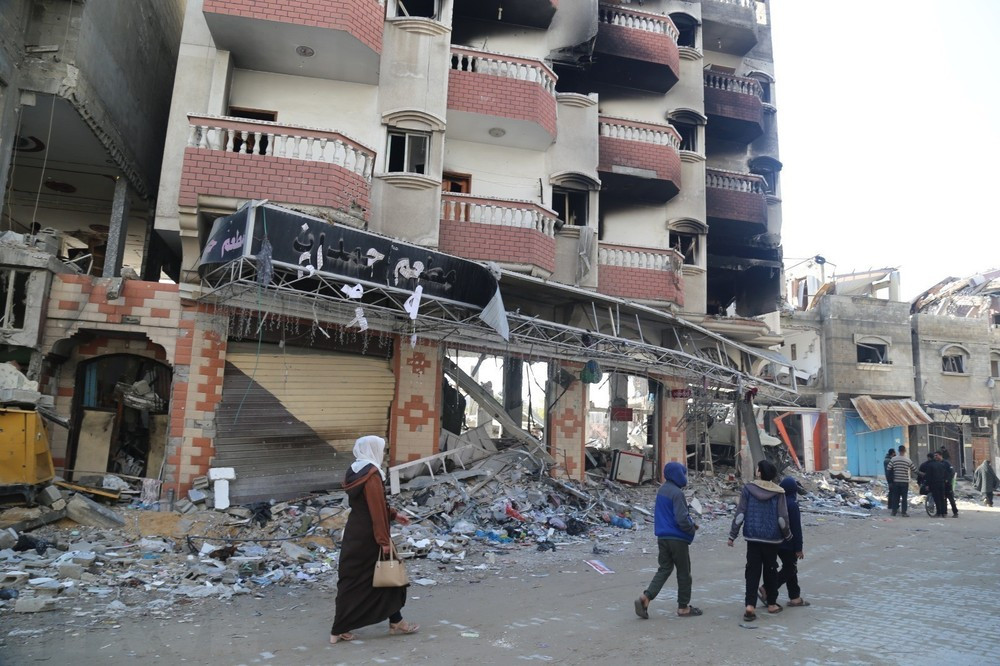The talks in Doha are the latest in more than three months of negotiations between US, Egyptian and Qatari mediators to broker a ceasefire in the more than five-month war in Gaza.

Negotiators met in Doha, Qatar, on March 18 to try to narrow remaining differences between Hamas and Israel over the possible terms of a ceasefire in the Gaza Strip and the issue of a hostage exchange, sources familiar with the talks said.
Negotiators from Egypt, Qatar and Israel held lengthy discussions on March 18, according to the sources.
Egyptian and Qatari mediators later met with Hamas officials. Israeli Mossad Director David Barnea, US CIA Director William Burns and Egyptian National Intelligence Director Abbas Kamel also visited Qatar on March 18.
The talks in Doha are the latest in more than three months of negotiations between US, Egyptian and Qatari mediators to broker a ceasefire in the more than five-month war in Gaza.
The move comes after negotiators failed to reach a ceasefire deal before the Muslim holy month of Ramadan, which begins on March 11, despite intense US pressure.
The talks in Doha are likely to last several days as mediators want Hamas leaders in Gaza to respond to new questions and proposals, sources said.
The draft six-week ceasefire agreement will continue to be discussed, in which Hamas wants Israeli forces to withdraw from urban centers and leave two main roads in Gaza, Salaheddin and Al Rasheed.
Hamas said this would facilitate the delivery of humanitarian aid across Gaza and ensure the safety of hundreds of thousands of residents who have been displaced by the war to return to their homes in central and northern Gaza.
Hamas also wants Israel to guarantee that a permanent ceasefire will be implemented after the six-week truce ends.
Hamas has announced that it is ready to release 40-45 of the approximately 100 hostages it is holding during the first six-week ceasefire. Those released will include women, the sick, the elderly and children.
In return, Israel must release at least 1,000 Palestinians being held in its prisons.
In phase two of the ceasefire deal, Hamas wants Israel to withdraw completely from Gaza, a demand that is unlikely to be met by Israeli Prime Minister Benjamin Netanyahu's government. Hamas has pledged to release female Israeli soldiers held hostage in phase two.
In return, Israel was to release Palestinian prisoners on a 1-for-50 basis, with each batch to include 30 Palestinians serving life or long-term sentences in Israeli prisons.
In phase three of the ceasefire deal, Hamas will release remaining Israeli soldiers in exchange for the freedom of Palestinian prisoners, with the exchange rate and numbers to be determined later.
The latest round of talks in Qatar has become all the more urgent because of the deteriorating humanitarian situation in Gaza, where the number of people facing severe famine has risen to 1.1 million.
A potential Israeli ground attack on the city of Rafah, south of Gaza, could be catastrophic.
Mr. Netanyahu on March 17 reaffirmed that Israeli forces intended to attack the city of Rafah, home to about 1.7 million Palestinians.
TB (according to VNA)